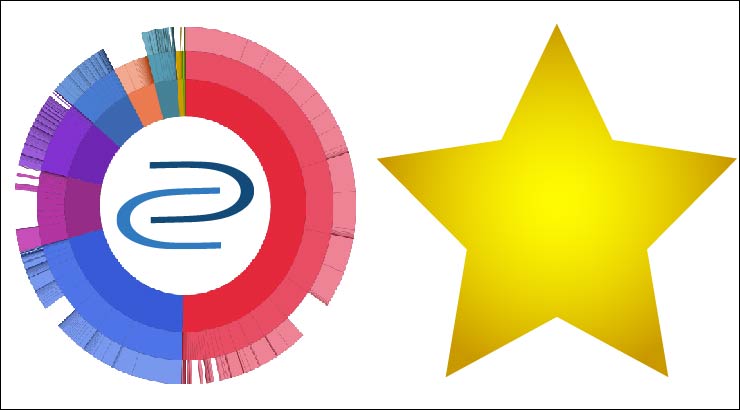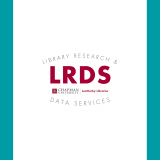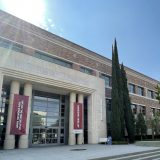
Celebrities of the Digital Commons: Dr. Shira Klein
August 12, 2020
Since May, we’ve chatted with five different Chapman University professors about their contributions to the Chapman University Digital Commons as a way of celebrating the Digital Commons reaching the wonderful milestone of one million downloads at the end of April. This week, we sat down with Dr. Shira Klein, professor of History, to discuss her contributions to the Digital Commons, which include the migration of Voces Novae: Chapman University Historical Review, Chapman’s undergraduate history journal, onto the Digital Commons.
How did your first piece make its way onto the Digital Commons? Did you submit it to our Coordinator of Scholarly Communications, Kristin Laughtin-Dunker, or did she reach out to you? For subsequent articles or objects of yours that were added to the DC, were they added in the same way?
In May 2016, I attended a workshop on teaching and learning led by Dr. Roxanne Greitz Miller. In that workshop, Dr. Miller showed all of us her statistics on the Digital Commons and said it’s a great way to track your publications and to use that for your tenure portfolio. Once the workshop ended, I reached out to Kristin immediately, and asked how to get started. Kristin told me all she needed was my CV and that from there, she could look at the list of what I’d published and do the work of reaching out to the publishers to see what permissions were available. So I sent her my CV and she just started uploading my work to the Digital Commons. After that, every time I had a publication coming out, I would reach out to Kristin and say, “Hey, could I put this one up as well?” And Kristin’s just been amazing about it, going into the publishers’ websites and figuring out what their permissions are, something that I really wouldn’t know how to do. So when my book came out, which is a 450-page monograph, Kristin showed me that I could put up an entire chapter, which I did.
Since then, I’ve been putting up pretty much all of my scholarly output on the Digital Commons, including a podcast that I did recently. I also use the Digital Commons for some of my teaching documents. I teach a course in migration history and I have the students do a project where they research an oral history by a migrant. So I put together a collection of all the databases I could find that contain oral histories of migrants being interviewed.
Do you have any thoughts you’d like to share about Open Access and academia?
Part of the reason that I like the Digital Commons so much is because I write to be heard. I write to be read. And the last thing that I want is to fall into that trap that so many academics, I think, fall into, which is writing for a very prestigious outlet, like a prestigious peer reviewed journal, and then, because of the prohibitive cost of, say, a subscription to a peer reviewed journal, having very few people have access to it. Of course, there’s a reason that academics publish with these outlets – there’s a reason that these places are prestigious, they have a very rigorous peer reviewed process, which you want to make sure you’re a part of. The Digital Commons is a really nice solution. You don’t sacrifice the rigor involved in publishing with an established publishing house or in a peer reviewed journal, and you also get to share your results with everyone.
I put links to my work on the Digital Commons on my website and basically everywhere I can, because I know that if people click on those links they’ll actually be able to read my work and not be prompted to pay $25 to read an essay.
How do you use the Leatherby Libraries and/or Digital Commons in your research?
I don’t think I necessarily use the Digital Commons search engine, but when I search things on Google Scholar, results from the Digital Commons come up. I use the Digital Commons all the time, for teaching, for finding new readings for students, and for finding readings that I need to put together my own publications. For instance, I recently wrote an essay on Italy in World War Two for an anthology by Routledge. The coronavirus had just broken out, so the library was closed and the Interlibrary Loan Service was down for certain types of materials, which was a problem, because I needed all of these sources to do my research. So I just started Googling and it turned out that there were a whole bunch of things that I could use in the Digital Commons.
Has anyone outside the Chapman community reached out to you about any of your work on the Digital Commons, to use it as a source, or in another capacity?
After I put up that collection of migrant oral history databases I mentioned earlier, I was contacted by a textbook publisher asking me to review for them the manuscript of a textbook on migration. I loved being able to do that service for the field.
Is there anything noteworthy you’d like to share about any of your collaborators? For instance, were they your students?
I already mentioned the podcast that I have up on the Digital Commons. I could not have done that without the help of two amazing film students who just graduated last year. They were in charge of everything production-related, and I’ve just gotten the best feedback about that podcast in terms of its production value, and it’s all thanks to the students. The podcast is based on my book that I published with Cambridge. Each of the three episodes is ten minutes long. It’s kind of like an intellectual snack, with sound effects and music. There are jokes in there that I wrote only because the students encouraged me to, since they understand entertainment and leading with good anecdotes. They really enriched it both in terms of the production and good sound quality. We even had some actors come in who were staff members in the College of Performing Arts, Peter Westenhofer and Bonnie Walker.
Finally, one of the reasons we reached out to you specifically was because of your involvement with Voces Novae and the decision to put it on the Digital Commons. Can you talk about that a little?
Voces Novae used to be on a different platform on the Chapman website. One fine day, Dr. Jana Remy and Kristin came to me, and suggested moving Voces Novae to the Digital Commons, listing all the advantages of hosting it there, including being able to see more detailed statistics, making the journal more easily searchable, both internally and on Google. I said yeah, let’s do it, and we migrated the whole thing, and again, Kristin was just unbelievable in overseeing that migration, because there were decades’ worth of journal issues to move. Migrating the entire journal gave us a better layout with no bugs, which is great, since the old platform had a few dead end links. It also gave us the opportunity to renew the logo and rejuvenate the journal by revising the editorial policy. The journal is entirely student-run, with very little faculty oversight. Each year, the student editors take a training with Kristin to learn how to use the Digital Commons from the editing side of things. We’re really proud of them and I think they are super happy to have something online that they can put on their CV. It’s tangible evidence of their scholarship and their editorial capabilities.

